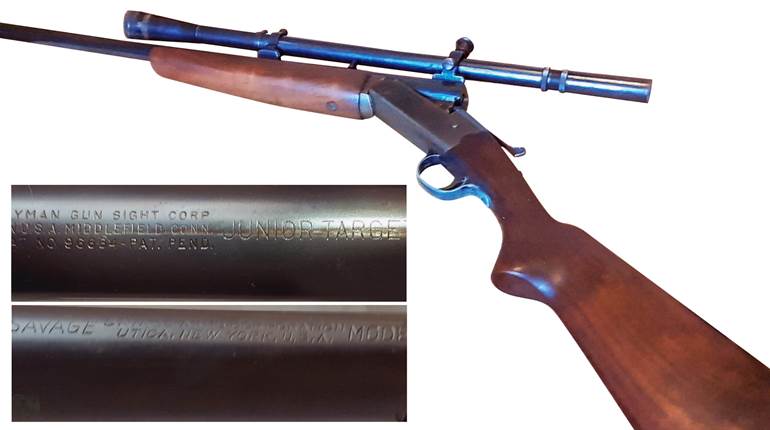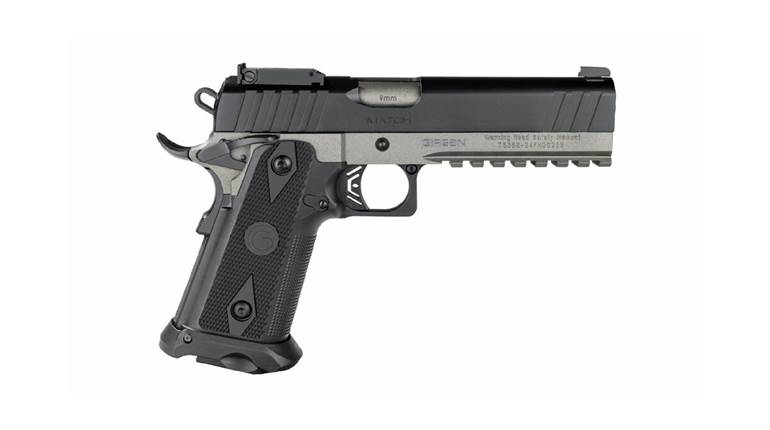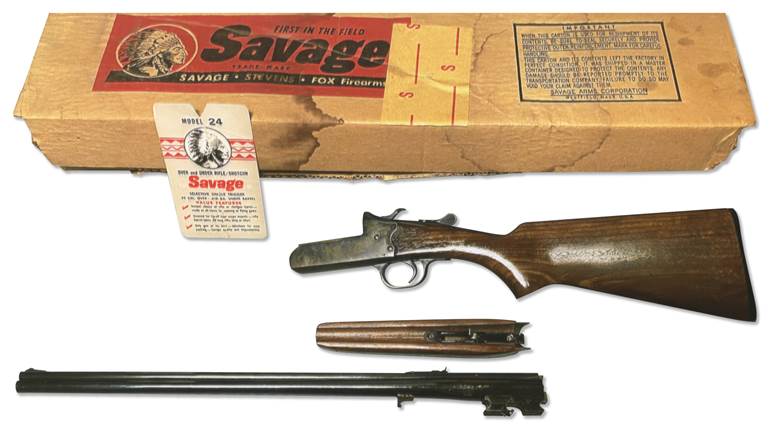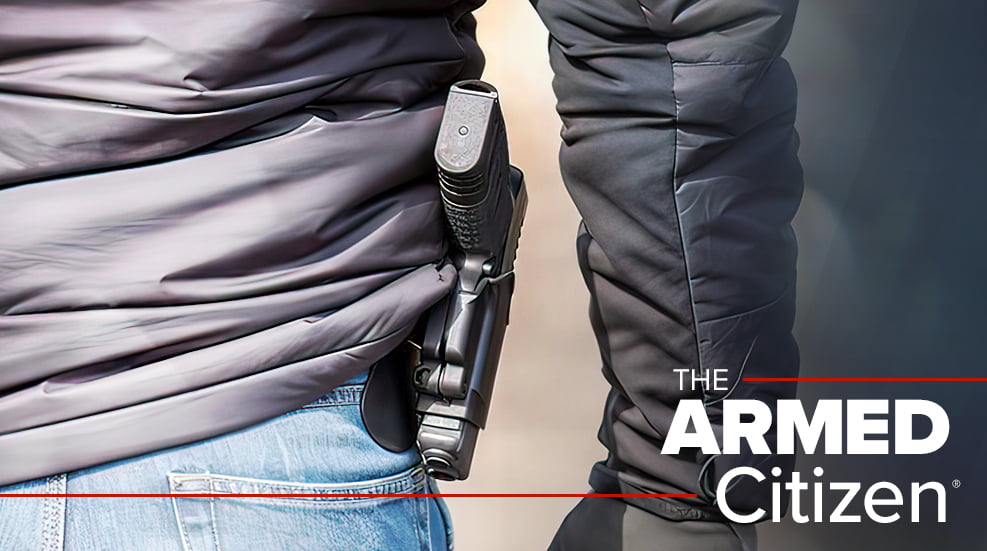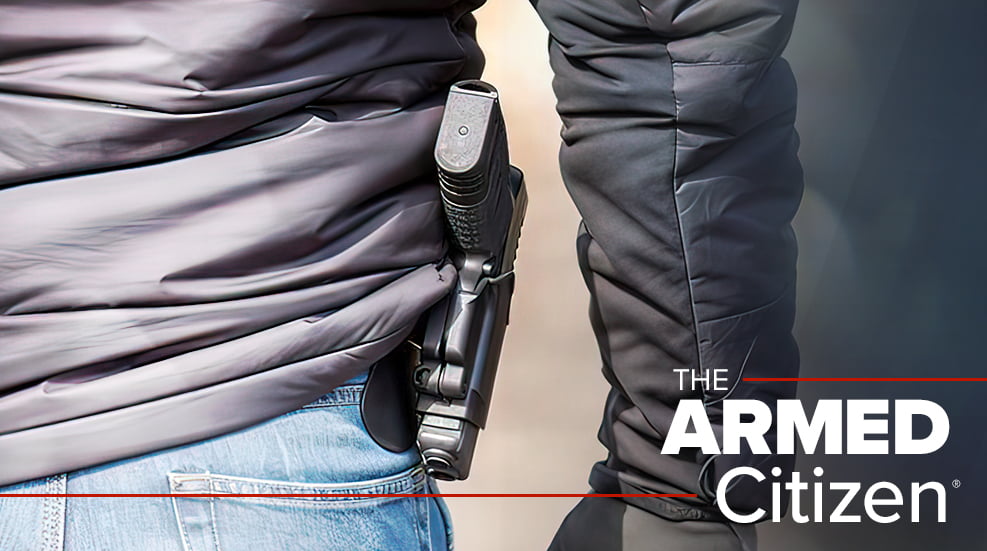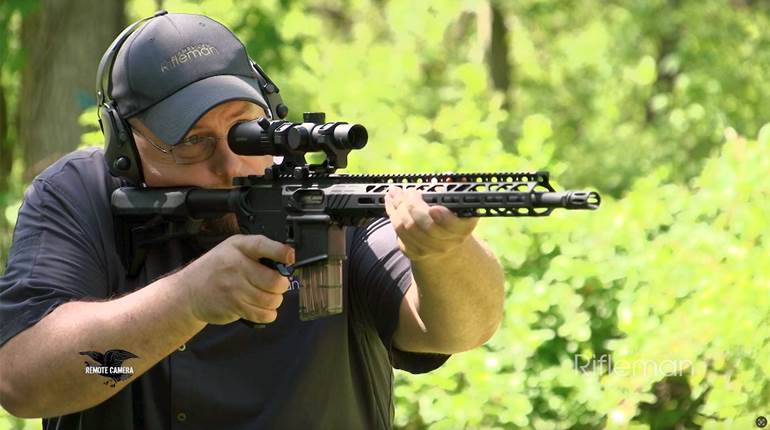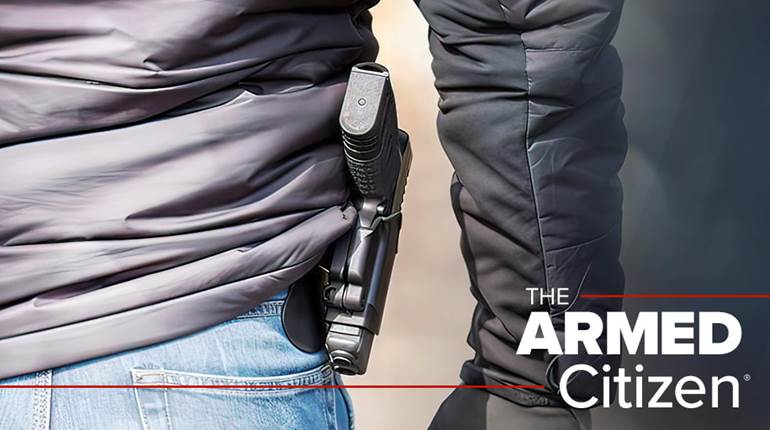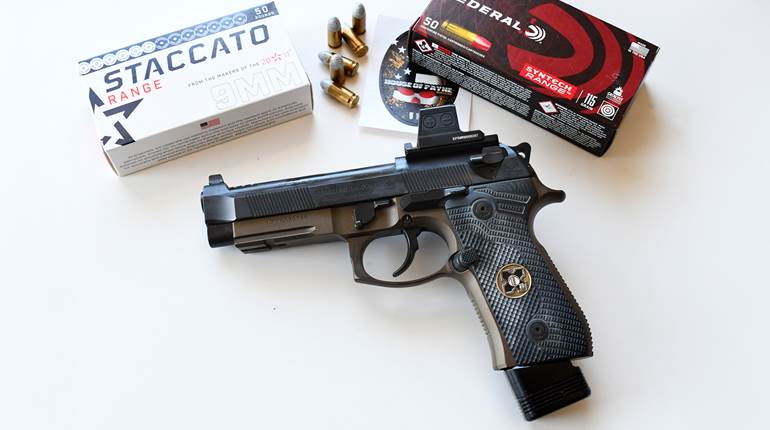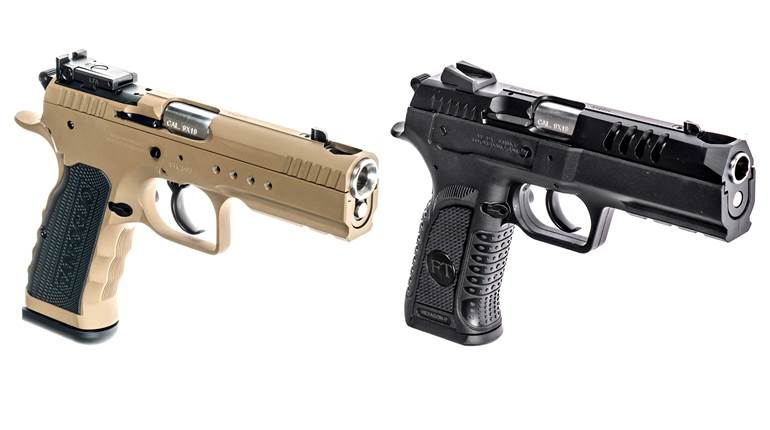
Introduced to the market in the early 1950s, the Savage Arms Model 24 series of over/under combo guns were available in several rifle caliber and shotshell combinations. Despite the fact that dual-caliber double-barrel long guns have not been as popular in the United States as they have been in Europe, the Model 24 in its various configurations sold well and remained in production until the late 1980s. Like many other enjoyable and practical firearms, the Model 24 did not garner as much time in the media spotlight as it deserved, but it was (and still is) a much loved field companion for those who purchased them. And so Savage Arms recently revived this platform as the Model 42.
The Model 42 combo gun features two 20-inch barrels attached to a hinged break-action receiver. The upper barrel is available in a choice of .22 Long Rifle or .22 Mag., while the lower barrel is chambered for 3-inch .410 shotgun shells. Digital calipers confirmed the choke of the lower barrel at .410 inches, making it a cylinder-bore choke instead of the full choke commonly found on fixed-choke .410s. Although the open choke will do for air-borne targets, this choice of choke is more likely to be put to work bagging small game or dispatching pests at close range.
This rifle/shotgun has a mixed materials construction that includes polymer stocks, steel barrels, steel hardware and a non-ferrous cast mono-block receiver. Instead of casting the polymer forearm into pieces or plates that would have to be held in place with screws, it is molded as a single piece that permanently encases the two blued-steel barrels. The forearm is slim with deep finger grooves on each side and textured patches along the lower edge. The shoulder stock has similar user-friendly features, including a textured pistol grip, a 13.5-inch length-of-pull and a thick, soft-rubber vented buttpad. The touch points on the stocks are sleek and trim. They'll feel comfortable in the hands of small-framed shooters, but they leave plenty of room for larger hands as well.
The blued-steel barrels sport a satin-blue finish, while the steel trigger, hammer, release lever, sling swivel studs and the various steel bolts that hold it together are treated with a matte-black finish. The polymer front sight is fixed, but the rear sight can be adjusted for windage and elevation. It can also be removed and replaced with a scope mount. A cross-bolt safety located above the molded trigger guard can be engaged to prevent the hammer from striking the firing pins. Internal safeties prevent the action from either opening or closing when the hammer is fully cocked.
To fire the Model 42, start by verifying that the hammer is in the forward (uncocked) position. The action is opened by depressing the trigger-like release located in front of the trigger guard. One or both barrels can be loaded, and then the action is closed. On top of the hammer is a small, textured lever that is used to switch the hammer from one barrel to the other. Pulling back (toward the operator) switches the hammer to the upper rimfire barrel, while pressing forward (toward the muzzle) returns the hammer to the lower .410 barrel. The hammer is manually cocked for each shot.
The upper barrel of the gun tested was chambered for .22 Long Rifle, which means it will also accept .22 Long, .22 Short and .22 rimfire shotshells like the CCI Pest Control rounds. The lower barrel accepts both 2½ and 3-inch .410 shotgun shells. After one or both barrels have been discharged, the spent cases are loosened by the polymer extractor to then be manually removed from the chambers.
At the shooting range, the Model 42 proved to be a handy, reliable and enjoyable gun to shoot. It weighs in at 4 pounds, 11 ounces when unloaded, which should be a manageable, if not downright comfortable, amount of weight for most shooters to manage. Some folks believe that polymer-stocked guns can't be handsome, but this particular combo gun has sleek lines that look good coming out of a case.
The fit and finish of the Model 42 was excellent, with the hinged action locking up tightly and operating without any wobbles or rough spots. When holding the stock firmly in place at the shoulder with the shooting hand, the action would drop open for reloading with the support hand. The crisp, single-action trigger broke at 5 pounds, 10 ounces of pressure, and the long hammer spur made the hammer comfortable to cock for every shot. The buttpad was a real bonus, grabbing onto the shoulder and effectively keeping recoil to a bare minimum. Some of the heavy .410 shells, such as the 3-inch, five-pellet 000 buckshot and PDX1 mixed payload rounds from Winchester, generate a level of felt recoil on par with light 20-gauge shotshells. This may not be a concern to the experienced operators, but it’s a nice touch for recoil-sensitive or new shooters.
The formal accuracy testing for the .22 Long Rifle barrel was conducted from a benchrest, using the iron sights, by firing five, five-shot groups into targets set at 25 yards. The best single group of 1.01 inches was produced using Federal's American Eagle 38-grain copper-plated hollow points (CPHP). This load also produced the best five group average of 1.33 inches, followed by the CCI Velocitor 40-grain CPHP at 1.45 inches, and the Winchester Dynapoint 40-grain CPHP at 1.46 inches.
The performance of the cylinder-bore .410 shotshell barrel was checked by firing single rounds into targets set at 7 yards. The tightest birdshot pattern of 7.25 inches was produced by a Federal 2½-inch shell loaded with No. 4 lead shot, followed by the Winchester 2½-inch Super X No. 7 ½ at 9.5 inches and the Winchester AA 2½-inch No. 9 at 11 inches. The Federal Premium 3-inch, five-pellet 000 buckshot round produced a tight 1.25-inch pattern at 7 yards.
In choosing to revive the Model 24 with the release of the up-to-date Model 42, Savage has done a terrific job of honoring the original intent of the dual-caliber double barrel while successfully bringing the design in line with modern manufacturing techniques and materials. This combo gun is ideal for a variety of uses including small-game hunting, as a garden gun, camp gun, survival gun or all-around plinker. It’s light, reliable, flexible and fun to shoot. Savage Arms deserves kudos, not only for breathing new life into an old idea, but for producing a well-built gun that can be enjoyed and relied upon for years to come.
Manufacturer: Savage Arms; Savagearms.com
Model: 42
Action: Break-action over/under
Caliber: .22 Long Rifle/.410 shotshell
Barrels: Matte-black carbon steel
Stock: Black polymer
Front Sight: Fixed polymer
Rear Sight: Adjustable polymer
Trigger Pull: 5 lbs., 10 ozs.
Barrel Length: 20”
Overall Length: 35.75”
Length of Pull: 13.5”
Weight: 4 lbs. 11 ozs.
Capacity: 1 round .22, 1 round .410
.22 LR Twist: 1:16” RH
.22 LR Grooves: 6
.410 Choke: Improved cylinder, fixed
Accessories: Lock, owner’s manual
Suggested Retail Price: $480













